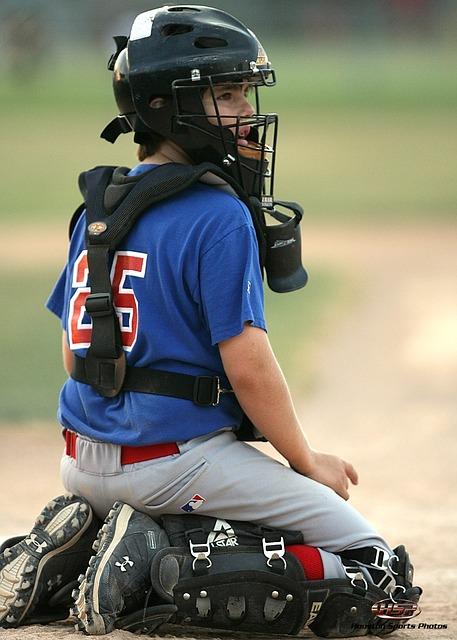
Who are you chasing?
We’ve all seen many underdog players or teams overachieve. On the flip side, we’ve also seen many incredibly talented players and teams underachieve. Both seem to happen so often that there must be a reason.
Of course, there is never just one answer but if I had to pick one that stands out the most it would relate to who or what the player or team was chasing.
Being an underdog implies that there is someone or some team above you to chase. This has two very important benefits for the underdog.
First, it allows the underdog to clearly see what is separating them from the top of the pack. It could be that the player or team throws more strikes. It could be that they make better contact or make less errors. Whatever it is, the underdog can easily determine their deficiencies and work to improve in those areas.
Second, and it goes hand in hand with the first, it allows the underdog to focus on the process of improving instead of just the results, meaning the wins. When you focus on the process, you get to experience many “micro-wins” along the way. Every good bullpen or batting practice session is a micro-win. Every extra sprint after practice is a micro-win. Lots of little wins means you frequently feel good and confident about yourself and your progress. Outsiders help add more confidence as well. People are a lot more positive and supportive when they do not expect you to win all the time. That typically means your respect and praise from others like coaches, fans, friends, and parents has more to do with how well you play as opposed to the final score. How well you play depends on the process which is largely under your control. When you feel you are in control, anxiety and stress levels tend to decrease and we all know that lower stress and anxiety means better performance in baseball.
The player or team at the top has a very different perspective.
First, top teams and players are already at the top so they tend to stop chasing anything. When you are at the top, everyone chases you. This shift can cause talented players and teams to stop moving forward. Underdogs keep looking upward and therefore tend to move in that direction. The top-dogs too often look backwards at the other players/teams and end up moving towards them (backwards) as a result. Like the saying goes, “You can’t drive a car with your eyes on the rear-view mirror.”
Second, when the player or team becomes the top dog, their focus tends to shift toward the results (winning and stats) more than the process. That’s because they are now expected to win. Unfortunately, especially in baseball, wins, loses, and many popular stats (batting avg., HR’s, etc.) have a lot to do with what the other team does and therefore removes a lot of it from the top-dog’s control. Feeling that lack of control breeds more stress and anxiety which can lead to lower performance, less winning, and lower stats. Confidence suffers too because they don’t allow themselves to experience all the micro-wins that occur throughout the process. People around them change as well. Coaches, fans, friends, and parents tend to become more critical when their top-dog loses because the top-dog was supposed to win the game. To those people, losing must have meant you played very poorly. That, of course, may not have been the case. Put all this together and you can see why the top-dog’s confidence and performance can spiral downward so quickly.
So how do you combat this if you are the top-dog? The answer is you must find something to chase!
Here is an example from my own career.
Growing up in Pennsylvania, I was always upset at the poor baseball weather from November thru April. Not only did I hate cold weather in general, it annoyed me even more because I knew there was some kid in the Dominican Republic or Florida or Texas who got the chance to play just about year-round. Of course, I thought that was very unfair. When I was snowed in, I pictured that kid outside in short sleeves playing baseball. When our game was cancelled because of rain or sleet, that kid’s game was still on! Probably under the lights! That kid irritated me. I couldn’t get that kid out of my head. Thankfully, this imaginary player in my head always gave me someone to chase. I realized early on that my real competition wasn’t another kid at my school or that rival school next door. It wasn’t even that stud across the state. My competition was that kid I pictured in my head.
No matter what award I won or stats that I put up, I knew that kid was out there somewhere. And he was probably better than me. I hated that kid.
Without knowing it, I had created a scenario in my head where I was always the underdog. As a result, I was always chasing someone.
Your season is right around the corner. Who are you chasing?

